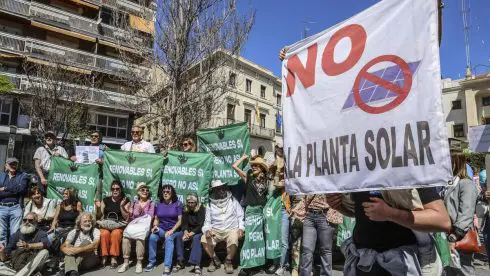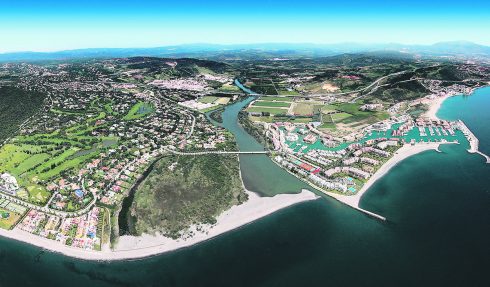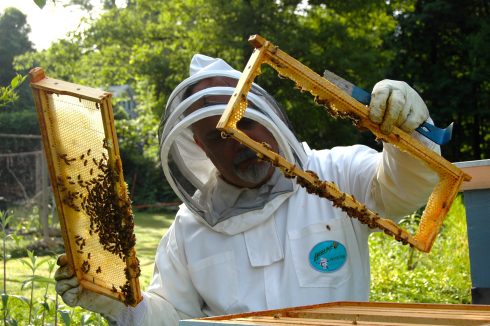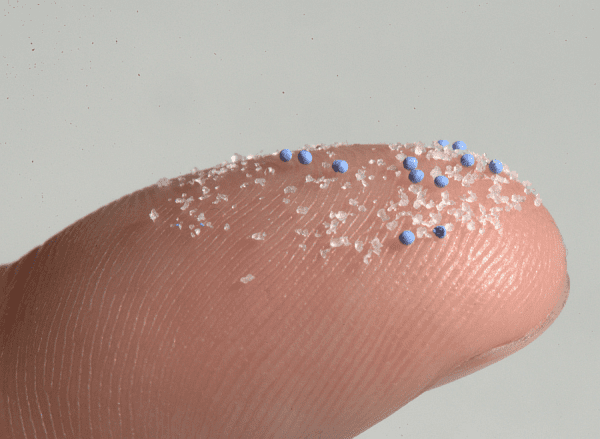
SUMMER is approaching and city dwellers in Spain love nothing more than to get away from the heat and dust of urban life, opting for the coast or the Pyrenees where the air is clean and fresh.
Or is it?
An ominous new study suggests that no matter where you go to get away from it all, the air is thick with microscopic particles of an all-pervasive material that is woven into the structure of our modern economy: single-use plastic. And now its poison has spread to one of Europe’s wildest natural landscapes.
Measuring less than 5mm long, micro-plastic is not only swirling like shoals of deadly nano fish in the Mediterranean, it has also reached a remote ‘pristine wilderness’ in the Pyrenees. More shocking still, it is being found in the kind of volumes you might expect to find in Paris or China’s most industrial zones, according to a study carried out by Steve Allen, a researcher in micro-plastics at Strathclyde University and his partner, EcoLab scientist Deonie Allen.
READ MORE:
- Spain’s Mercadona ditches single-use plastic bags
- NOT A BIN: Plastic fills river on Costa Blanca just hours after a 20-tonne clean-up
- War to be waged against plastic in Gibraltar following deaths of ‘magnificent’ birds
The density of the micro-plastic particles in a cross-border area was measured in the French meteorological station of Bernadouze, 1,425 metres above sea level, over five months between 2017 and 2018. The result was a daily average of 365 particles per m2. According to the study, most were invisible to the naked eye and could have been transported from up to 95 km away.
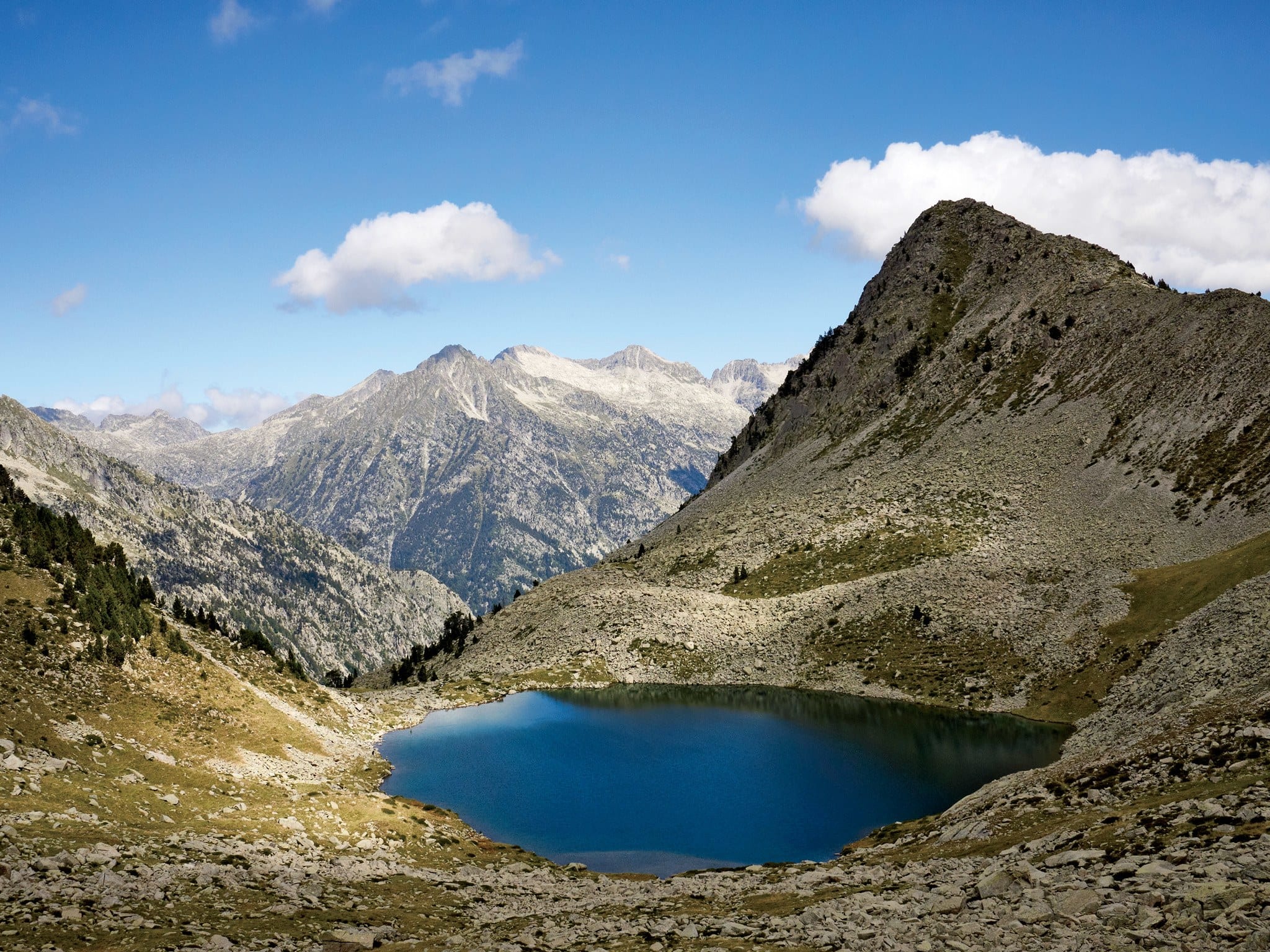
“It opens up the possibility that it’s not only in the cities you are breathing this in, but it can travel quite some distance from the sources,” Allen wrote in a paper published in the Nature Geoscience journal. “Plastic litter is an increasing global issue and one of the key environmental challenges we face on global scale.”
As the nearest hamlet is 25 km away from the target research area, it is not known if the particles came from Toulouse or from the Spanish cities of Barcelona or Zaragoza. According to Alba García, who runs Greenpeace Spain’s Plastics Campaign, the particles could even have been transported by storms from the marine environment.
10 easy ways to cut the crap
1. Buy fewer clothes
2. Carry your own water bottle
3. Shop less online
4. Buy unwrapped vegetables and other foodstuffs
5. Carry your own takeaway coffee cup
6. Bin dry waste without a bin liner
7. Shop with reusable grocery bags
8. Avoid frozen foods stored in plastic bags
9. Buy soaps and shampoos in bars or in containers labeled recyclable
10. Carry your own take-away container
Spain is the main culprit, after Turkey, for the quantity of plastic in the Mediterranean – a scandalous 126 tonnes daily, according to a study by Orb Media earlier this year. This chemically-charged debris, eaten by fish, acts as a magnet for other chemicals in the water, making them ever more toxic.
Spain is also the fourth biggest consumer of plastic in Europe, possibly due to tourism as visitors are more likely to take a holiday from responsible consumption and splurge on single-use plastic items, 70% of which are never recycled.
But one of the main problems is the lack of ready, cheap alternatives to the imperishable material that is now part of the air we breathe and the water we drink. The Orb Media study found that 92% of bottled water and 83% of tap water is contaminated by micro-plastic particles.
“People throwing away plastics is part of the problem,” Alba tells me. “But the main cause is the density of these materials everywhere. If you go to a supermarket, it’s impossible to get out of there without plastic.”
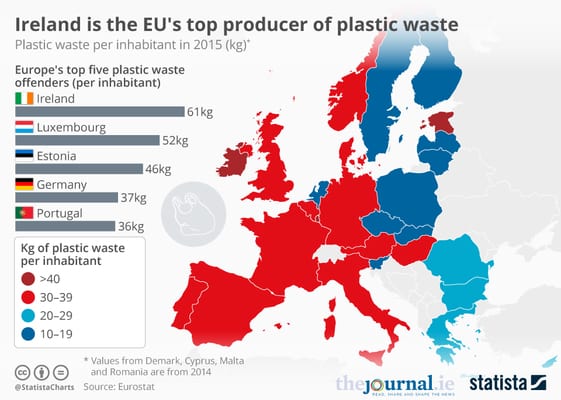
Despite growing unease among consumers over the choices available to them, the plastics industry continues to boom. Production of thermoplastic used in water bottles rose 4.7% year on year between 1990 and 2017 and it is predicted to rise by a further 40% in the next 10 years.
Though EU legislation will ban single-use plastic products such as cutlery, straws, balloon sticks, cotton buds, polystyrene packaging and cups by 2021, there is still no legislation to curb the amount of plastic companies use.
“Some countries were more flexible and others like Italy less so,” says Alba, referring to the environmental lobby’s efforts to nail an ambitious deal. “Italy was very opposed, in fact, as they have a big plastics industry. Spain was a little bit more pro-sustainability, despite the fact we also have a plastics industry here.”
Plastic has been around for nearly a century and as manufacturers’ association Plastics Europe points out, it is ‘the ultimate versatile material, making possible numerous technological innovations, new design solutions, environmental enhancements and cost-savings.’
But surely scientists can come up with something less contaminating to take their place?
“Compostable materials or bio-plastics are alternatives that are still based on the throw-away culture,” says Alba. “These are up to five time more expensive than normal plastic but they don’t get to the root of the problem because they still have plastic in them. That is why Greenpeace is so persistent about re-usable products.”
Eva González, director of Ecodes, a non-profit organization for sustainable and eco-friendly development, agrees. “We believe that getting away from the throw-away culture is fundamental for the wellbeing of our planet and for meeting the UN Sustainable Development Objectives,” she tells me. “When it comes to bioplastics, it is true that some have plastic in them and some are not biodegradable. The ones that are will only do so under certain conditions, such as the temperature of the soil or environment they are deposited in. If those conditions are not met, they don’t biodegrade.”

The only viable option appears to be to transform the industries based on single-use plastic into reusable industries. “We can create an economy based on reusing products that have to be washed and put back in the consumer chain,” says Alba.
The window of opportunity is still open. As 16-year-old Swedish activist Greta Thunberg, fiesty founder of the global Fridays for Future movement, told UK MPs in the Houses of Parliament this April, “Humans are very adaptable; we can still fix this. But the opportunity to do so will not last for long.”




